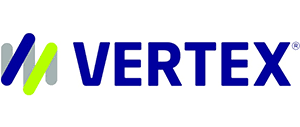Top Five IT News Stories of the Week, 30/06/2024

Hello, readers! Welcome back to our weekly roundup of the top five news stories in Information Technology. Let's dive right in!
Google's Major Expansion in Dublin.
Google is planning a significant expansion of its data centre capacity in Dublin¹. The tech giant has revealed plans to build a 72,400 sq m data storage facility at the Grange Castle Business Park in Dublin 22, where it already has two data centres¹. This move reflects Google's ongoing commitment to meeting the growing demand for its services and supporting Ireland's digital economy.

The data storage facility will include data halls, offices, and staff facilities. It will also include a new thoroughfare connecting Grange Castle Business Park South with Profile Park Road. Grange Castle is home to data centres run by several other companies, including Microsoft.
Google, which has its European headquarters in Dublin, employs more than 5,000 people in Ireland as of April. The tech giant recently appointed Waterford-born Vanessa Hartley as the new head of its Irish operations after predecessor Adaire Fox-Martin left to become CEO and president of Equinix. Hartley has been with Google for around ten years in various leadership positions.
In addition, Google is investing €150m in this massive data centre expansion. This expansion will bring Google’s total capital investment in its Irish data centres to €500m, out of a total capital investment in Dublin of €1bn. This expansion will add considerably to Google’s presence in Dublin, where it employs an estimated 7,000 people directly and indirectly.
Data centres are expected to consume nearly a third of Ireland’s total electricity by 2026, according to an International Energy Agency report published in January¹. Figures released by the Central Statistics Office last year showed that data centres consumed 18% of Ireland’s metered electricity in 2022, up from 14% in 2021. The figure was 5% in 2015.
This expansion is a testament to Google's ongoing commitment to Ireland as a key operation hub. Google clearly sees a bright future in Dublin and is investing heavily to ensure its services continue growing and evolving.
Meta's Plan to Use Facebook and Instagram Posts to Train AI.
Meta, the parent company of Facebook and Instagram, has announced plans to use public posts from these platforms to train its artificial intelligence (AI) models. This move has sparked controversy, with digital rights groups criticizing it as an "abuse of personal data for AI". Despite the backlash, Meta maintains that its approach complies with relevant privacy laws and is consistent with how other big tech firms use data to develop AI experiences.

This move has sparked controversy, with digital rights groups criticizing it as an "abuse of personal data for AI". Noyb, a European campaign group that advocates for digital rights, has filed complaints with 11 data protection authorities across Europe, urging them to halt the company's plans immediately.
Despite the backlash, Meta maintains that its approach complies with relevant privacy laws and is consistent with how other big tech firms use data to develop AI experiences. A blog post published on 22 May said European user information would support a wider rollout of its generative AI experiences, partly by providing more relevant training data.
Strict data protection rules protect users in the European Union and the UK and have the right to object to their data being taken and used. When the delayed plans are put back into action, users will be notified again about the upcoming changes. That will likely come in the form of a notification or email from Meta, allowing users to object before the changes come into force.
Users in the US or another country without those data privacy laws have no option to opt-out. Data from as far back as 2007 includes public posts, photos, and messages. Users give Meta permission to use their public data this way when they agree to the platforms' terms of service.
The company has also delayed releasing Meta AI in Europe because of the delays¹. "Put simply, without including local information, we'd only be able to offer people [in Europe] a second-rate experience," said Stefano Fratta, Meta's global engagement director for privacy policy, in a statement. "This means we can't launch Meta AI in Europe now."
NatWest's AI-Powered Virtual Assistant.
NatWest is preparing to roll out its generative AI-powered virtual assistant service, Cora+, which was developed in collaboration with IBM’s enterprise AI and data platform, Watson⁴. The latest developments will enable the service to derive information from multiple sources through multi-channel integration and to provide contextualised, preemptive responses.

NatWest is launching Cora+, an upgrade to its digital assistant, Cora, developed in collaboration with IBM1. This new version of Cora will be introduced during London Tech Week and will be one of the first banks in the UK to deploy generative AI through a digital assistant1.
Cora supports customers in answering banking queries 24/7 through natural language processing and machine learning capabilities1. In 2023, the digital assistant helped customers with 10.8 million daily banking queries, an increase from just over 5 million in 2019.
Cora+ will build on current capabilities into an intelligent virtual agent that uses generative AI to provide more intuitive, conversational customer experiences1. This will initially be introduced as a 12-week pilot to address learnings and updates, to be fully rolled out at a later date1.
Critical features of Cora+ include:
Multi-channel integration: Cora+ can access information from multiple secure sources, including various products, services, and information about the bank, in one place.
Enhanced conversational abilities through AI: With generative AI, customers can ask questions and receive responses in a more natural, human style and are provided with links to request information, which they can either view immediately or bookmark for later.
Proactive assistance: Once Cora+ is fully rolled out, the digital assistant can anticipate customer needs, without requiring the customer to think of what to ask, based on past interactions and transaction history1.
In situations where intervention from a customer service agent is needed, IBM’s enterprise AI and data platform will concisely summarise the conversation so that the human agent can quickly understand what support the customer needs and the nature of their interaction with Cora.
Vertex's Acquisition of AI Tax Capabilities.
Tax technology solutions provider Vertex announced its acquisition of "tax-specific AI capabilities" this month from Ryan, LLC, a tax services and software company based in Dallas, Texas. The taxtech company anticipates that its new AI features will increase the accuracy of tax compliance⁴.

Vertex, a global provider of tax technology solutions, has announced the acquisition of tax-specific AI capabilities from Ryan, LLC, an award-winning tax services and software firm. The acquisition is designed to manage the complexity of tax mapping¹ more effectively.
The categorization of products for taxability is a manual and time-consuming process that is critical for achieving enhanced tax accuracy, especially for high-volume businesses that must manage indirect tax compliance globally at scale. The acquisition will accelerate Vertex’s AI innovation strategy to help global companies manage tax complexity with incredible speed and scale.
"We have had a strong partnership with Ryan for years. Now we have an opportunity to advance the value of AI for tax teams by combining Ryan’s extensive tax expertise with the strength of the Vertex technology platform,” says Chirag Patel, Chief Strategy Officer of Vertex.
The new Vertex AI capabilities leverage proprietary and private Large Language Models (LLM) to deliver Generative Pre-Trained Transformer (GPT) capabilities combined with “human in the loop” tax expertise to maintain a robust control framework to increase the accuracy for tax compliance. Proprietary LLMs allow Vertex to deliver trusted AI that achieves enhanced accuracy without aggregating, sharing or mining customer data like other approaches¹. This enables tax teams to realize the benefits of AI technologies while maintaining control of their data.
Vertex’s tax-intelligent approach combines advanced AI capabilities with automation that identifies when human intervention is necessary. This enables tax teams to achieve more incredible speed, efficiency, and tax accuracy.
Financial terms of the transaction were not disclosed. The acquisition is expected to streamline tax categorization with generative AI¹.
AccountsIQ's €60m Investment to Embed AI into Accounting Platform.
Dublin-based financial management software firm AccountsIQ has bagged a €60 million Series C investment this month from growth investment fund Axiom Equity⁴. The company predicts that its newfound pursuit of combining the platform with AI will "deliver even more value to its diverse customer base" and "shape the finance function of the future"⁴.
That's all for this week! Stay tuned for more updates on the world of information technology. As always, stay safe and keep innovating!




